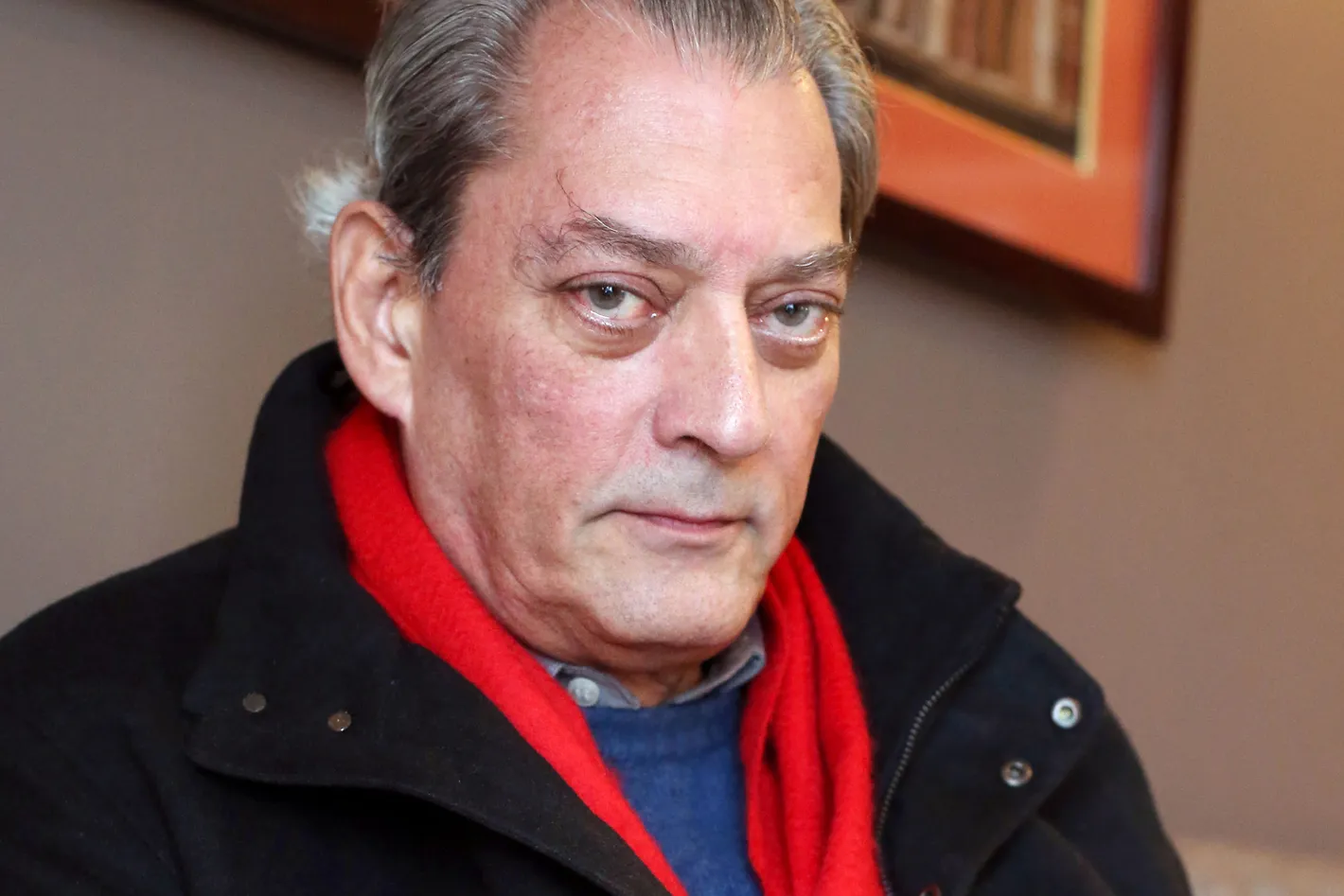Paul Auster, born on February 3, 1947, in Newark, New Jersey, is an influential American author known for his explorations of identity, space, and the intricate dance of chance and coincidence in life’s narrative.
His work, which also spans poetry, essays, and screenwriting, delves into the complexities of storytelling and the human experience, making him a distinctive voice in contemporary literature.
See Paul Auster’s Books In Order>>
Auster’s literary career is marked by a profound interest in the concept of randomness and how it affects the characters’ lives, a theme that resonates throughout his extensive body of work.
After graduating from Columbia University in the early 1970s, Auster moved to Paris, a period that significantly shaped his approach to writing and storytelling. It was during these formative years abroad that he began to weave the intricate narratives that would define his career.
Perhaps best known for “The New York Trilogy,” a series of novels that blend traditional detective fiction with existential questions, Auster’s writing is characterized by its philosophical depth, engaging prose, and the ability to transform the mundane into the profound.
His novels often feature protagonists on quests for meaning in an unpredictable world, making his stories both relatable and deeply introspective.
Beyond fiction, Auster’s work as a memoirist and essayist offers insight into his personal life and the philosophical underpinnings of his novels. His memoir “The Invention of Solitude” reflects on fatherhood and the nature of memory, themes that permeate much of his fiction.
Auster’s contributions to literature have been recognized with numerous awards and honors, cementing his status as a major figure in American letters. His passion for the craft of writing, combined with his continuous exploration of language and form, has inspired a generation of writers and readers alike.
Living in Brooklyn with his wife, novelist Siri Hustvedt, Paul Auster remains a prolific figure, whose work continues to challenge and enchant, inviting readers to question their perceptions of identity, fate, and the stories we tell about our lives.
New York Trilogy Books In Order of Publication
| City of Glass | (1985) |
| Ghosts | (1986) |
| The Locked Room | (1986) |
Standalone Novels In Order of Publication
| In the Country of Last Things | (1987) |
| Moon Palace | (1989) |
| Auggie Wren’s Christmas Story | (1990) |
| Leviathan | (1992) |
| Mr. Vertigo | (1994) |
| Dream Days in Hotel | (1998) |
| Timbuktu | (1999) |
| Sophie Calle: Double Game | (1999) |
| The Book of Illusions | (2002) |
| Oracle Night | (2004) |
| The Brooklyn Follies | (2005) |
| Travels in the Scriptorium | (2005) |
| Man in the Dark | (2008) |
| Invisible | (2009) |
| Sunset Park | (2010) |
| 4 3 2 1 | (2017) |
| Baumgartner | (2023) |
Plays In Order of Publication
| The Music of Chance | (1990) |
| Blue in the Face | (1990) |
| Smoke | (1995) |
| Lulu on the Bridge | (1998) |
| The Inner Life of Martin Frost | (2000) |
| Collected Screenplays | (2010) |
Non-Fiction Books In Order of Publication
| White Spaces | (1980) |
| The Art of Hunger | (1983) |
| The Notebooks of Joseph Joubert(With: Joseph Joubert) | (1983) |
| The Invention of Solitude | (1985) |
| The Red Notebook | (1993) |
| Why Write? | (1996) |
| Translations | (1997) |
| Paul Auster’s New York(With: Frieder Blickle) | (1997) |
| Hand to Mouth | (1997) |
| The Story of My Typewriter(With: Sam Messer) | (2002) |
| Collected Prose | (2003) |
| Winter Journal | (2012) |
| Here and Now(With: J.M. Coetzee) | (2012) |
| Report from the Interior | (2013) |
| A Life in Words(With: I. B. Siegumfeldt) | (2017) |
| Talking to Strangers | (2019) |
| Groundwork | (2020) |
| Burning Boy: The Life and Work of Stephen Crane | (2021) |
| Long Live King Kobe | (2022) |
| Bloodbath Nation | (2023) |
Anthologies In Order of Publication
| Granta 58: Ambition | (1997) |
| Strange Stories for Strange Kids | (2001) |
| The Future Dictionary of America | (2004) |
| 110 Stories | (2004) |
| Central Park: An Anthology | (2012) |

